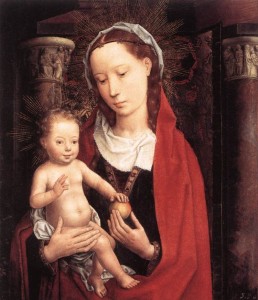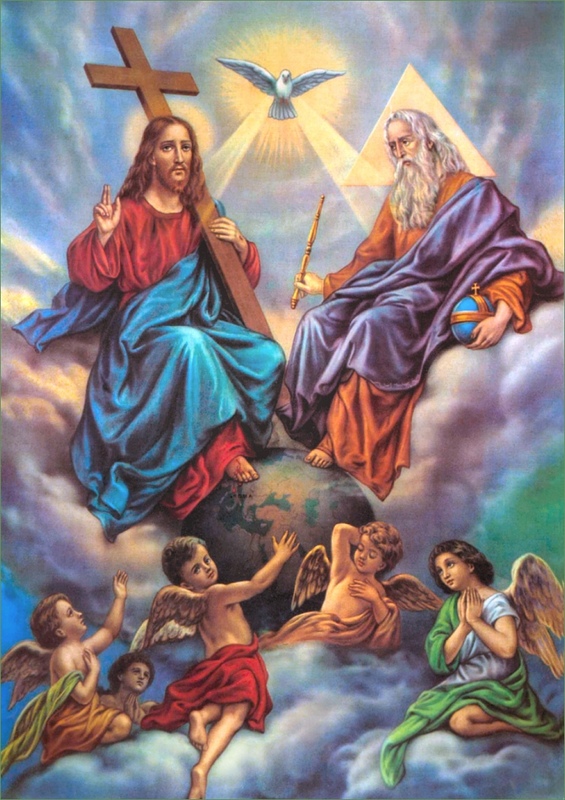podcast 241 – Dr. Beau Branson on the Monarchy of the Father – Part 3
Was 381 the dawn of imperially enforced confession of a triune God?
Was 381 the dawn of imperially enforced confession of a triune God?
Why “that’s just Philosophy” is no excuse for a failure of basic critical thinking.
Ten basic questions that need to be answered, and ten more advanced questions.
A would-be teacher on trinitarian topics is merely an incoherent tritheist.
Origen sez: you must say that Father and Son are “one God.” But does he think they are?
Dr. White vs. John on the thesis of the 4th gospel.
 Let’s pretend that this shows Jesus at the age of 3 months. Does the New Testament teach that no more than 12 months before, Jesus came into existence (for the first time), that is, in philosopher’s lingo, that he was generated?
Let’s pretend that this shows Jesus at the age of 3 months. Does the New Testament teach that no more than 12 months before, Jesus came into existence (for the first time), that is, in philosopher’s lingo, that he was generated?
Sir Anthony Buzzard has argued that the New Testament teaches exactly that, and explicitly so. There’s been a boiling discussion of this argument by our intrepid commenters on this post.
I think this issue deserves some posts. In the past I’ve never been sure I’ve quite understood his argument, and so have never taken a position on it. I’m going to think through it in this series of posts.
Let us first note that the truth and reasonableness of this humanitarian unitarian christology doesn’t stand or fall with this exegetical argument. There may be other textual, theological, or philosophical reasons to hold that Christ did not exist before his human life, i.e. before his conception. It is clear to me, in fact, that this argument is not Sir Anthony’s only reason for this view. (See e.g. comment #2 in the discussion linked above.)
Second, let’s note that it is a very strong or bold argument. Read More »Buzzard’s textual arguments against Jesus’ pre-human existence – Part 1
What should we think of Athanasius’s ferocious condemnations of those he termed “Arians”?
Last time we looked at an exchange between Christian and Muslim apologists in the early 14th century, in which the Christian side, under pressure from longstanding Muslim accusations of polytheism, spells out the doctrine of the Trinity in a plainly modalistic way. This practice is ongoing, as we’ll see. Thomas F. Michel is a Jesuit priest and scholar who edited and translated the largest response… Read More »Islam-Inspired Modalism – Part 2

Last time, I explained that Athanasius has not made it clear how the Son ‘inherits’ divine properties from the Father. Yet even if Athanasius could explain how the Son ‘inherits’ properties from the Father, there’s still another problem. Like Arius, Athanasius believes that the Father is simple, and so anything ‘in’ the Father is, strictly speaking, identical to the Father. If the Son is going to inherit any properties from the Father, then surely he’d have to inherit them all. As Athanasius himself realizes, it’s not a question of the Son inheriting part of the Father. It’s a question of all or none.
However, there are certain properties the Son cannot inherit from the Father, on pain of contradiction. For instance, the Son cannot inherit the Father’s unbegotteness. The Son is begotten, but the Father is not, so the can’t inherit the Father’s unbegotteness without entailing a contradiction.
Read More »Arius and Athanasius, part 10 – The Father and Son can’t share all their properties (JT)
“Mary cradled the Creator in her arms. ‘I never imagined God would look like that,’ she says to herself.”
A number of Christian academic bloggers have weighed in on the Wheaton controversy about Dr. Larycia Hawkins, specifically her statement that Christians and Muslims worship the same god. If you haven’t been following the whole thing, blogger Fr. Alvin Kimel summarizes it well in this post at Eclectic Orthodoxy. There, and in a follow-up post, like me he gives an affirmative answer – yes, Christians… Read More »“same god” controversy round-up
In that region there were shepherds living in the fields, keeping watch over their flock by night. Then an angel of the Lord stood before them, and the glory of the Lord shone around them, and they were terrified. But the angel said to them, “Do not be afraid; for see—I am bringing you good news of great joy for all the people: to you… Read More »Merry Christmas!
Does Jude 4 somehow refute what unitarian Christians say about John 17:1-3.
He assumes that necessarily, any human, as such, is subject to God.
It’s because of the argument you made…
Our friend Dr. Ed Feser has got himself worked up into full drunken polemicist mode. I earn ridicule and ire normally reserved for Dawkins types. Evidently I touched a nerve by pointing out that most (analytic) philosophers now – reflecting a fairly wide consensus since early modern times – think of God as the greatest being there is or could be, and not as “Being… Read More »why I’m not a Thomist 1 – the Christian tradition that God is a Being